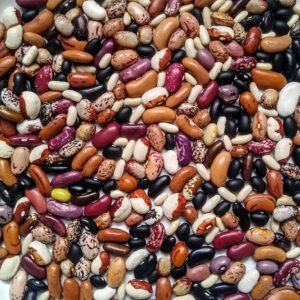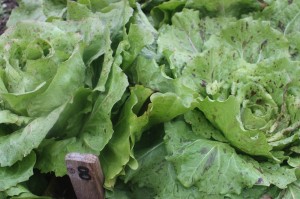
 OSA is proud to announce that it has received funding to address the high demand for year-round availability of locally grown vegetables in Oregon and Washington. The project is co-funded by a Washington State Department of Agriculture Specialty Crop Block Grant and Oregon Department of Agriculture Specialty Crop Block Grant.
OSA is proud to announce that it has received funding to address the high demand for year-round availability of locally grown vegetables in Oregon and Washington. The project is co-funded by a Washington State Department of Agriculture Specialty Crop Block Grant and Oregon Department of Agriculture Specialty Crop Block Grant.
Farmers in Oregon and Washington experience similar agronomic challenges and climates. Both states are also home to buyers that demand superior culinary qualities in their produce. OSA’s project is a multi-state partnership with Oregon State University and Washington State University.
“OSA has a ten-year track record in delivering high-quality seed research and education to farmers and their buyers in the region,” says Micaela Colley, OSA’s executive director. “This project builds on the successes of other participatory plant breeding projects by strengthening a regional network of farmers and produce buyers who are creating new production and sales opportunities for local food and agriculture.”
OSA’s project focuses on four priority crops for which there is much interest and potential in expanding year-round production in Oregon and Washington. These crops include overwintering chicories, overwintering sprouting broccoli, winter cabbage, and storage onions. OSA will evaluate the agronomic and culinary qualities of these crops with farmers and produce buyers, including chefs and distributors. The project also includes a number of tastings and networking events to promote these crops, and helps farmers identify the most appropriate seed varieties for the region.
Farmers in Oregon and Washington excel in producing high-value specialty vegetable crops during the traditional growing season, but the region remains dependent on imported crops during the winter and early spring months. Many farmers are eager to expand production of overwintering and storage crops to retain customers through the off-season. Beyond providing chefs, retailers, and consumers with access to locally grown food year-round, expanding these markets will provide farmers with increased sales during months when income is typically lower.
An important goal of this project is to strengthen a regional network of farmers and produce buyers who are participating in seed variety trials. This collaboration bridges the gap between plant breeders, farmers, and produce buyers by evaluating plant varieties for a number of different qualities. For example, farmers want varieties that perform well in organic and other low-input production systems in the region, while buyers demand certain culinary traits, such as improved flavor.
The grant also ensures better access to field trial data so farmers know which seed varieties have traits that make them optimal for their climate and also meet local market demands. For example, farmers in the region have expressed frustration in accessing good varieties of onions. Farmers and seed companies are eager for more field trial data on open-pollinated onion varieties that can be grown for both produce and seed.
“This project could not be timelier,” says Colley. “There is a burgeoning interest among chefs in where and how their favorite ingredients were grown, as well as the quality, integrity, and regional appropriateness of the seed necessary for growing it.”
This grant is part of the U.S. Department of Agriculture’s (USDA) 2013 Specialty Crop Block Grant Program awards. Secretary Tom Vilsack announced last week that the funding includes 54 block grants to U.S. states and territories that support 694 initiatives to help strengthen markets for specialty crops.
